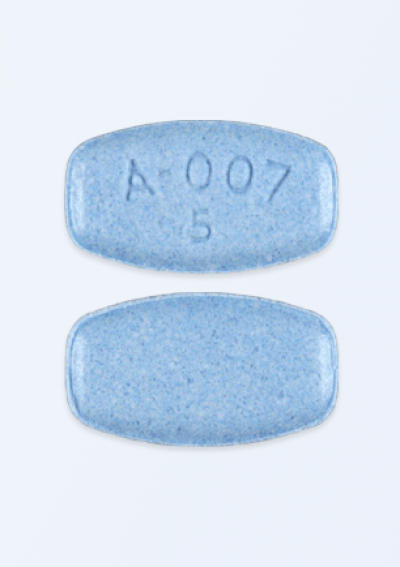Abilify Lawsuits
Thousands of patients have sued the makers of the antipsychotic drug Abilify. Lawsuits claim the drug caused damaging side effects, including gambling addictions and other impulse control problems. In February 2019, the companies that make and sell the drug agreed to a settlement.

When it first became available in the United States in 2002, Abilify was considered a groundbreaking treatment for schizophrenia. But as use of the drug grew, so did reports of unwanted and serious side effects, including serious impulse control problems.
Thousands of people have sued Bristol-Myers Squibb Company and Otsuka Pharmaceuticals Inc. over allegations that the companies failed to warn patients prior to 2016 that the antipsychotic drug could trigger uncontrollable urges to gamble, shop, eat and have sex.
The plaintiffs allege the drug is defective, and they could have avoided disastrous consequences had they known about the potential side effects.
In October 2016, the U.S. Judicial Panel on Multidistrict Litigation transferred most federal Abilify lawsuits to the U.S. District Court for the Northern District of Florida and assigned them to Chief Judge M. Casey Rodgers. Coordinating cases this way, under what’s known as an MDL, creates an efficient process to handle a large number of similar lawsuits.
In February 2019, lawyers for both sides agreed to a settlement that would resolve the remaining cases under Judge Rodgers. As of March 2019, a total of 2,430 cases were pending in the Abilify MDL. The drug companies also agreed to settle similar claims pending in state courts in New Jersey, California and other states.

Compulsive Behavior Claims
Men and woman who’ve filed lawsuits against Bristol-Myers Squibb and Otsuka allege Abilify was a defective drug. They say the manufacturers knew or should have known the medication could cause gambling addictions and other compulsive behaviors, but they failed to warn the public and doctors about the potential dangers for many years.
The plaintiffs contend they could have made better decisions had they been warned of those risks, and they allege Bristol-Myers Squibb and Otsuka “wrongfully and unjustly profited at the expense of patient safety.”
“Abilify injured Plaintiffs, by causing harmful compulsive behaviors including compulsive gambling, resulting in substantial financial, mental, and physical damages,” according to the plaintiff’s master complaint in the Abilify MDL.
The plaintiffs include people like Denise Miley, who began taking Abilify in the fall of 2014 for depression and anxiety.
Within a few weeks of starting the medication, the Minnesota mother of four found herself inexplicably drawn to local casinos.
At first, she thought of her gambling outings as a good thing. She was getting out of the house more, and she considered her visits to the casino as little more than an excursion, according to an article by STAT reporter Megan Thielking. But soon, Miley began to skip work and secretly headed to the slots any chance she could.
As her gambling addiction spiraled out of control, she made up other excuses to gamble. She’d tell her family she needed to work late or do Christmas shopping. She’d often step away from her son’s basketball games during halftime and head to the casino. Sometimes, she wouldn’t return.
As Miley’s gambling compulsion grew, she drained her family’s bank accounts, and unbeknownst to her husband, she took out a $50,000 loan to pay off gambling debts. At times, she grew so desperate about the situation, that she considered suicide.
It wasn’t until Miley hit rock bottom in February 2015 that she got the professional help she needed and a doctor took her off Abilify. Her gambling urges vanished soon after, but by that time, her financial losses exceeded $75,000, according to her complaint.
Abilify injured Plaintiffs, by causing harmful compulsive behaviors including compulsive gambling, resulting in substantial financial, mental, and physical damages.
Other people who have decided to take legal action have similar stories.
Christina Milisic, a plaintiff in a class action lawsuit in Canada, also developed an uncontrollable gambling habit after she started taking Abilify in 2013 to treat hallucinations and paranoia. She ended up losing more than $400,000 and declaring bankruptcy, and her fiancé left her, according to news reports.
She stopped taking Abilify in 2015, the same year the Canadian government required a warning be added to the drug’s label about uncontrollable gambling and sexuality.
David Viechec began taking Abilify around 2012 and developed a compulsive gambling problem soon after. The Florida man lost more than $75,000 because of his gambling addiction, according to a court complaint.
Viechec didn’t learn of a connection between the compulsion to gamble and Abilify until 2016 when the U.S. Food and Drug Administration announced new drug label warnings about “compulsive or uncontrollable urges to gamble, binge eat, shop and have sex.”
In 2018, Viechec received a settlement for an undisclosed amount from the drug’s makers.
People who have filed Abilify lawsuits are not only seeking compensation for gambling losses but also for lost wages, pain and suffering, and past and future medical expenses related to treatment for their compulsive behavior. Plaintiffs are also asking for punitive damages, or compensation meant to punish the drug makers and deter future wrongdoing.
Settlement Agreements
In February 2019, lawyers for Otsuka and Bristol-Myers Squibb and lawyers for the plaintiffs tentatively agreed to settle Abilify lawsuits pending in state and federal courts throughout the United States.
- Lawsuits filed as of Jan. 28, 2019, in the Abilify MDL in the U.S. District Court for the Northern District of Florida and cases being transferred to that MDL
- All lawsuits consolidated under an Abilify multicounty litigation (MCL) assigned to Judge Nelson C. Johnson of the Atlantic County Superior Court in New Jersey
- Any Abilify cases pending in California state courts that involve claims of compulsivity
- Any other Abilify lawsuits in federal or state court involving alleged compulsivity injuries
The companies previously settled three cases included in the federal MDL in Florida just as the cases were set to go to trial. The details of the settlement reached in April 2018 are confidential.
Off-Label Marketing Settlements
In 2007, Bristol-Myers Squibb paid $515 million to resolve allegations related to illegal marketing and pricing practices, including off-label promotion of Abilify.
The U.S. Department of Justice alleged that from 2003 until 2005, the company encouraged doctors to prescribe Abilify to treat elderly patients with dementia and children with certain psychiatric problems, even though the FDA had not approved the drug for either of those uses.
According to the Justice Department, the company had its sales team urge child psychiatrists and other physicians to prescribe the drug to children. It also had a special sales team that focused “almost exclusively on nursing homes,” where dementia-related psychosis is common.
In 2006, a black box warning was added to Abilify to caution that the drug could cause life-threatening complications in elderly patients with dementia.
Otsuka ended up paying $4 million to resolve the claims in 2008, and eight years later, in 2016, Bristol-Myers Squibb coughed up another $19.5 million to settle state probes into the matter.
“This is another example of a big pharmaceutical company ignoring serious health concerns to boost its profits,” former Illinois Attorney General Lisa Madigan said in a statement. “BMS’ practices potentially harmed older patients in order to increase the company’s bottom line.”
27 Cited Research Articles
Consumernotice.org adheres to the highest ethical standards for content production and references only credible sources of information, including government reports, interviews with experts, highly regarded nonprofit organizations, peer-reviewed journals, court records and academic organizations. You can learn more about our dedication to relevance, accuracy and transparency by reading our editorial policy.
- American Pharmacists Association. (2018, August 3). A legal fight may decide whether a drug triggers compulsive behavior. Retrieved from https://www.pharmacytoday.org/drugs/drugs-2018-08-03-story3
- Bellon, T. (2018, February 27). BMS reaches confidential settlement of all Abilify claims. Retrieved from https://www.reuters.com/article/products-abilify/bms-reaches-confidential-settlement-of-all-abilify-claims-idUSL1N20M2E4
- Government of Canada. (2015, November 2). Summary Safety Review — Abilify and Abilify Maintena (aripiprazole) — Evaluating the Risk of Certain Impulse Control Behaviours. Retrieved from https://www.canada.ca/en/health-canada/services/drugs-health-products/medeffect-canada/safety-reviews/summary-safety-review-abilify-abilify-maintena-aripiprazole-evaluating-risk-certain-impulse-control-behaviours.html
- Hrodey, M. (2015, May 4). The Selling of Abilify. Retrieved from https://www.milwaukeemag.com/the-selling-of-abilify/
- Illinois Attorney General. (2016, December 8). Madigan Announces $19.5 Million Settlement With Drug Maker for Deceptive Marketing of Abilify. Retrieved from http://www.illinoisattorneygeneral.gov/pressroom/2016_12/20161208.html
- Kodama, M. & Hamamura, T. (2010, May 1). Aripiprazole-induced behavioural disturbance related to impulse control in a clinical setting. Retrieved from https://academic.oup.com/ijnp/article/13/4/549/713599
- Lynch, S.N. (2016, December 8). Bristol-Myers Squibb to pay $19.5 million to settle off-label promotion case. Retrieved from http://www.illinoisattorneygeneral.gov/pressroom/2016_12/20161208.html
- Nestal, N.L. (2016, November 28). Patients Say Abilify Turned Them Into Compulsive Gamblers and Sex Addicts. Retrieved from https://www.thedailybeast.com/patients-say-abilify-turned-them-into-compulsive-gamblers-and-sex-addicts
- Psychopharmacology Institute. (n.d.). Aripiprazole Indications: FDA-Approved and Off-Label Uses. Retrieved from https://psychopharmacologyinstitute.com/publication/aripiprazole-indications-fda-approved-and-off-label-uses-2120
- Robinson, K. (2016, November 26). Pensacola judge to hear Abilify gambling suit. Retrieved from https://www.pnj.com/story/news/local/2016/11/26/pensacola-judge-hear-abilify-gambling-suit/94431536/
- Roebuck, C. (2017, May 9). Calgary woman part of a class-action lawsuit against drug maker. Retrieved from https://calgary.ctvnews.ca/calgary-woman-part-of-class-action-lawsuit-against-drug-maker-1.3405645
- Superior Court New Jersey. (2019, March 7) In Re: Abilify; Order Regarding Settlement Agreement and Deadlines. Retrieved from https://www.njcourts.gov/attorneys/assets/mcl/abilify/orders/settleorder.pdf?c=Bew
- Thielking, M. (2019, August 3). Hundreds Claim Anti-Depressant Drug Triggered Compulsive Behavior. Retrieved from https://www.kqed.org/futureofyou/443739/hundreds-claim-anti-depressant-drug-triggered-compulsive-behavior
- U.S. Department of Justice. (2007, September 28). Bristol-Myers Squibb to Pay More than $515 Million to Resolve Allegations of Illegal Drug Marketing and Pricing. Retrieved from https://www.justice.gov/archive/opa/pr/2007/September/07_civ_782.html
- U.S. Department of Justice. (2008, March 27). Otsuka to Pay More than $4 Million to Resolve Off-Label Marketing Allegations Involving Abilify. Retrieved from https://www.justice.gov/archive/opa/pr/2008/March/08_civ_244.html
- U.S. District Court Northern District of Florida, Pensacola Division. (2018, April 28). In Re: Abilify (Aripiprazole) Products Liability Litigation: Order. Retrieved from http://www.flnd.uscourts.gov/sites/default/files/mdl9234/876%20-%20Order%2C%20Settlement%20of%20First%20Trial%20Pool%20Cases.pdf
- U.S. District Court Northern District of Florida, Pensacola Division. (2016, August 22). Lyons and Lyons. V. Bristol-Myers Squibb Co. et al.: Complaint and Demand for Jury Trial. Retrieved from https://jc6kx1c9izw3wansr3nmip8k-wpengine.netdna-ssl.com/wp-content/uploads/2016-08-22-Lyons-Complaint.pdf
- U.S. District Court Northern District of Florida, Pensacola Division. (2019, February 21). In Re: Abilify (Aripiprazole) Products Liability Litigation: Order Establishing the MDL 2734 Qualified Settlement Fund and Appointing Claims Administrators. Retrieved from http://www.flnd.uscourts.gov/sites/default/files/mdl9234/1131%20-%20Order%20Establishing%20QSF%20%26%20Appointing%20Claims%20Administrators.pdf
- U.S. District Court Northern District of Florida, Pensacola Division. (n.d.). Abilify Products Liability Litigation — MDL No. 2734 Master Docket: 3:16-md-2734. Retrieved from http://www.flnd.uscourts.gov/master-docket-316-md-2734
- U.S. District Court Northern District of Florida, Pensacola Division. (2016, June 20). Viechec et al. v. Bristol-Myers Squibb et al: Complaint and Demand for Jury Trial. Retrieved from https://ecf.flnd.uscourts.gov/doc1/04904945171
- U.S. District Court Northern District of Florida, Pensacola Division. (2016, December 2). In Re: Abilify (Aripiprazole) Products Liability Litigation: Master Long Form Complaint and Jury Demand. Retrieved from http://www.flnd.uscourts.gov/sites/default/files/Abilify%20Master%20Complaint.pdf
- U.S. Food and Drug Administration. (2016, May 3). FDA Drug Safety Communication: FDA warns about new impulse-control problems associated with mental health drug aripiprazole (Abilify, Abilify Maintena, Aristada). Retrieved from https://www.fda.gov/drugs/drug-safety-and-availability/fda-drug-safety-communication-fda-warns-about-new-impulse-control-problems-associated-mental-health
- U.S. Food and Drug Administration. (2017, February). Highlights of Prescribing Information. Retrieved from https://www.accessdata.fda.gov/drugsatfda_docs/label/2017/021436s042,021713s033,021729s025,021866s027lbl.pdf
- U.S. Food and Drug Administration. (2017, May 16). Department of Health and Human Services Public Health Service Food and Drug Administration Center for Drug Evaluation and Research Office of Surveillance and Epidemiology: Pediatric Postmarketing Pharmacovigilance and Drug Utilization Review. Retrieved from https://www.fda.gov/media/107289/download
- U.S. Judicial Panel on Multidistrict Litigation. (2016, June 24). In Re: Abilify Compulsive Behavior Products Liability Litigation: Memorandum in Support of Joint Motion for Transfer of Actions Pursuant to 28 U.S.C. § 1407. Retrieved from https://45ijagbx6du4albwj3e23cj1-wpengine.netdna-ssl.com/wp-content/uploads/2016-06-24-Motion.pdf
- U.S. Judicial Panel on Multidistrict Litigation. (2019, March 15). MDL Statistics Report — Distribution of Pending MDL Dockets by District. Retrieved from https://www.jpml.uscourts.gov/sites/jpml/files/Pending_MDL_Dockets_By_District-March-15-2019.pdf
- U.S. Securities and Exchange Commission. (2019, February 25). Bristol-Myers Squibb Company 10-K Annual Report. Retrieved from http://d18rn0p25nwr6d.cloudfront.net/CIK-0000014272/12c3ebbd-f29f-4489-ac5d-f46785033fbf.pdf
Calling this number connects you with a Consumer Notice, LLC representative. We will direct you to one of our trusted legal partners for a free case review.
Consumer Notice, LLC's trusted legal partners support the organization's mission to keep people safe from dangerous drugs and medical devices. For more information, visit our partners page.
844-420-1914
